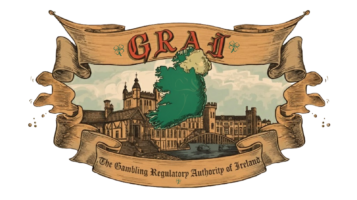Top Casino Playing Countries in the World

The digital age has profoundly reshaped the entertainment landscape, with online gambling emerging as a significant global industry. Millions worldwide engage daily with a diverse range of gaming options, from the rapid excitement of online slots and the strategic depth of poker to the adrenaline of live sports betting. This sector continues its robust expansion, with global turnover figures reaching hundreds of billions of euros annually, highlighting a persistent human fascination with games of chance.
While gambling is a popular pastime across nearly every culture and continent, certain nations distinguish themselves through exceptionally high levels of participation. By examining where the most substantial per capita expenditure occurs, we gain valuable insights into the unique cultural contexts, regulatory frameworks, and economic factors that influence gambling habits globally. Our analysis focuses on countries where individuals, on average, allocate the most financial resources to various forms of gambling, encompassing both the virtual realm of online casinos and traditional land-based establishments.
Based on comprehensive studies that track average per capita spending, a clear picture emerges of the nations leading in gambling expenditure. These figures, typically presented in euros, offer a snapshot of the financial commitment individuals in these countries make to their preferred gaming activities, reflecting current trends and projections for 2025.
Australia: A Nation Deeply Engaged with Gambling
Australia consistently ranks among the top globally for per capita gambling expenditure, a clear indicator of its deeply embedded gambling culture. Australians enthusiastically participate in a wide array of gaming options. This includes the ubiquitous slot machines, affectionately known as ‘pokies,' found in pubs and clubs nationwide, alongside large-scale casinos, extensive sports betting markets, and national lotteries. A significant factor contributing to this high annual spend, estimated at approximately €1,200 per person, is the tax-free status of gambling winnings, which makes the prospect of a substantial win even more appealing.
Singapore: High Stakes in a Controlled Environment
Despite a highly regulated environment and substantial entry fees for local citizens at its integrated resorts, Singapore demonstrates a remarkably high per capita gambling spend, averaging around €1,100 annually. The presence of world-class casino complexes, such as Marina Bay Sands and Resorts World Sentosa, combined with a population that appreciates high-stakes entertainment, ensures that gambling remains a prominent activity for those who can afford it, contributing significantly to the nation's tourism and economy.
Ireland: A Strong Affinity for Betting
Ireland has witnessed a notable surge in the popularity of online casinos in recent years, complementing its long-standing passion for traditional betting. The Irish exhibit a particular fondness for sports betting, especially on horse and dog racing, which fuels a dynamic and accessible gambling market. This diverse interest, spanning both digital and traditional platforms, contributes to an average annual expenditure of approximately €600 per person, reflecting a vibrant and evolving gambling landscape.
Canada: Diverse Gaming Across Provinces
Gambling is a widespread activity across Canada, with a significant portion of the adult population engaging in some form of gaming each year. Whether it's participating in provincial lotteries, visiting one of the many land-based casinos, or playing online poker and casino games, Canadians embrace a variety of gambling activities. The average per capita spend in this North American nation is estimated at €570 per year, reflecting broad acceptance and extensive availability of regulated gambling options across its provinces and territories.
Finland: State-Controlled, Active Participation
In Finland, gambling operations are strictly controlled by the government, with a state-owned monopoly overseeing most activities. Despite this tightly regulated environment, Finns are active gamblers, spending an average of €560 per person annually. Interestingly, government data frequently indicates that older demographics, particularly those over 65, are among the most frequent participants in various gambling activities, highlighting a generational aspect to their engagement.
Italy: A Rich Gambling Heritage
Italy boasts a rich and diverse gambling tradition, encompassing everything from strategic poker and a growing online casino market to eSports betting and popular instant-win games like scratch cards. With several globally renowned land-based casinos, Italians enjoy a varied gambling landscape that blends historical charm with modern digital offerings. The average annual expenditure per person in Italy stands at approximately €517, showcasing broad engagement across different gaming formats and a deep cultural connection to games of chance.
Hong Kong: Monopoly-Driven Engagement
Hong Kong presents a unique scenario where most forms of gambling are prohibited, yet it maintains a high per capita spend. The Hong Kong Jockey Club holds a monopoly on horse racing, football betting, and lotteries, making it the sole legal operator for these popular activities. This limited but immensely popular offering is sufficient to drive an average annual gambling expenditure of around €500 per person, demonstrating the significant demand for regulated betting within its strict framework.
Norway: Strict Regulations, Strong Demand
Norway enforces a stringent gambling policy, with only two state-owned operators authorized to offer real-money games. Despite these tight controls, Norwegians remain active gamblers, primarily engaging in lotteries, sports betting, and online casino games offered through the state monopolies. The average annual spend per person is approximately €448, indicating a strong underlying demand for regulated gambling options, even within a highly restrictive market.
Greece: Lotteries Lead the Way
Greeks show a strong preference for national lotteries, which are incredibly popular and deeply embedded in the culture, though online casinos and poker games also attract a significant following. The gambling market in Greece is diverse, catering to a wide range of tastes, from traditional lottery draws to modern digital gaming. The average annual per capita spending in Greece is around €420, reflecting consistent engagement with both traditional and modern forms of gambling, with lotteries often taking precedence.
Spain: Football Fuels the Market
While online gambling is legal and widely accessible in Spain, sports betting, particularly on football, dominates the market. This deep cultural connection to sports drives a significant portion of the gambling activity, with millions placing bets on their favorite teams and matches. Although online casinos and slots are readily available, they are not the primary choice for most Spaniards. The average annual expenditure per person in Spain is approximately €418, largely fueled by the nation's enduring passion for sports wagering.
These figures underscore the global reach and multifaceted nature of the gambling industry. While per capita spending offers a valuable metric for understanding engagement, it is crucial to remember that responsible gambling practices are paramount. For those who choose to participate, understanding personal limits and seeking support if needed ensures that gambling remains a form of entertainment rather than becoming a problem. Always gamble responsibly and within your means.
Most Recent News
Get the latest information








